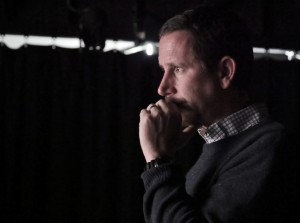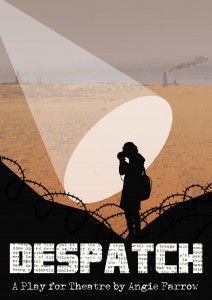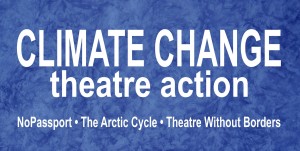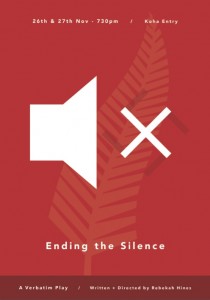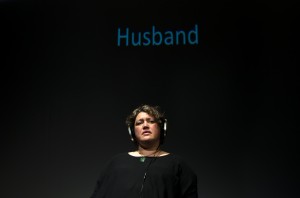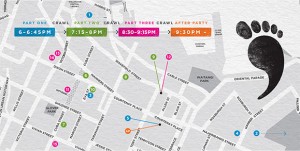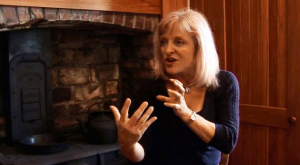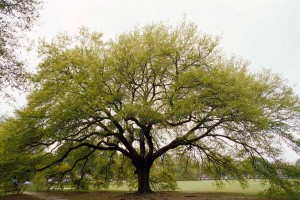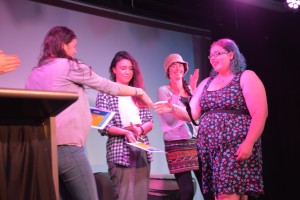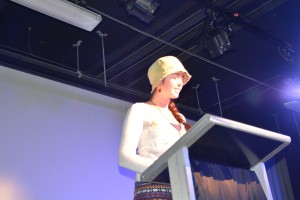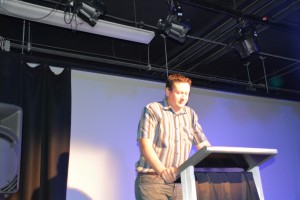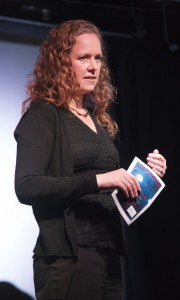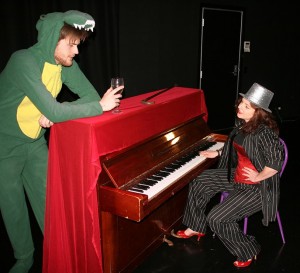Editorial
Welcome to the eighth edition of NUTS NZ – the Newsletter for University Theatre Studies New Zealand. The purpose of the newsletter is to help us communicate more effectively as a community of scholars interested in Theatre and Performance.
The meeting of the NZ Universities Committee for Theatre/Performance Research was held at University of Auckland on Monday 9 November 2015. One of the issues that was discussed is the status of creative outputs as part of research, particularly given the approaching PBRF exercise and the challenges we face as a community in how performance research is evaluated. Several members had recently experienced an internal institutional review of research and it was noted that while Universities acknowledge the work and value of creative outputs there is still an undermining of the value of this work in regards to the PBRF. As one member explained, its difficult to find time to write PBRF articles when much of our time might be taken up juggling teaching and directing or producing theatre productions. Although productions might count internally within universities as valid and justifiable research – some internal reviews conducted at Universities in NZ struggled to find ways to account for these creative outputs as part of the PBRF exercise. This seemed to highlight a suggestion made by Sharon Mazer at a previous meeting that was about encouraging us as a community to make sure we attend each other’s creative work and write reviews or peer evaluations that might help to critically articulate and place such work as original contributions to knowledge. We also discussed how different institutions might manage payment to individual academics who might be involved in different creative projects ‘outside’ the university. The next meeting of the NZ Universities Committee for Theatre/Performance Research will be hosted by the University of Otago next year.
This is the final edition of NUTS NZ for 2015 and it has been interesting keeping up-to-date with what our various theatre programmes are doing over the year. If you have also found the newsletter informative and worthwhile, please do take the initiative to ensure your colleagues, postgrad students, and administrators are aware of NUTS and the dates for submission of news stories and items. We are glad to report that we will be back again next year. We plan to circulate our ninth issue of NUTS NZ in mid-March 2016, and we will need items of news by 26 February. As always, submissions should be sent to the NUTS NZ editor Jane Marshall: j.g.marshall@massey.ac.nz
|
Newsletter Issue |
Information Required by |
Date of Circulation |
|
Issue 9 |
26 February 2016 |
11 March 2016 |
|
Issue 10 |
29 April 2016 |
13 May 2016 |
|
Issue 11 |
29 July 2016 |
12 August 2016 |
|
Issue 12 |
28 October 2016 |
11 November 2016 |
Kind regards,
NUTS NZ editors: Jane Marshall and Rand Hazou.
NUTS People
In each edition of NUTS NZ we profile an academic and a postgraduate student to show case “our people” and their current research/interests. In this issue we have Dr Rand Hazou and PhD Candidate Ammar Almaani, both from Massey University. As always, NUTS NZ asked each of them to answer the following questions:
- What is your research about?
- What theatre/performances have you seen recently?
- What have you been reading lately?
Dr Rand Hazou
Research: My research tends to focus on theatre engaging with issues of social justice. A large majority of the theatre I tend to write about deals with social isolation or marginalisation. I’ve written about refugee theatre, Palestinian theatre, and documentary theatre. At the moment I am trying to finnish an article on Auckland-based Massive Company (http://www.massivecompany.co.nz) and their production of ‘The Brave’ which explored stories about contemporary masculinity and male identity in New Zealand.
Theatre: In September I saw David Greig’s play ‘The Events’ which was staged by Silo Theatre at Q Theatre in Auckland. The production has stayed with me. Each night the production featured a different local choir from around Auckland, who provided musical accompaniment for the performance. It was interesting watching these ’non-actors’ negotiate the stage space and their ambiguous placement as both ‘performers’ and as ‘audiences’ to the action that was unfolding on stage. I also liked the way Beulah Koala played all the secondary characters from perpetrator of a crime, to counsellor, to passer-by, to the Lesbian lover of the main protagonist played by Tandi Wright. I liked the idea that wherever the main protagonist and victim turned, she ended up seeing the face of the perpetrator who had committed the horrendous crime that continues to haunt her. The most recent performance I saw was a promenade-style adaptation of Strindberg’s The Stronger which was staged in the bar and dressing rooms of The Basement Theatre in Auckland. Playwright Nathan Joe took inspiration from Strindberg’s one-sided conversation in the original play and developed a series of scenes exploring this device in which audiences were invited into different areas of the The Basement to ‘over-hear’ different pairs of characters confront each other.
Reading: I’m reading Urbanesia: Four Pasifika Plays (Playmarket 2012). I was particularly keen to read ‘My Name is Gary Cooper’ by Vitor Rodger which appears in this volume. I’ve also been reading ‘Out of Time Out of Place: Public Art (Now)’, which is edited by Claire Doherty (Art/Books, 2013). The book features forty works of art that intervene in some way in the social order. These tend to be works ‘staged’ outside of conventional art gallery spaces. I was particularly intrigued by the work ‘NowhereIsland’ by Alex Hartley that is documented in the book which began with the ‘discovery’ of a rocky outcrop in the arctic that had been been revealed by a retreating glacier. The artist ended up towing this land-mass from the Norwegian arctic circle to the UK where it was presented as a new Island state accompanied by a mobile embassy. The work involved 23,003 people signing up to be citizens of the new Island nations and were issued passports. The work seemed to raise really interesting questions about displacement, mobility, and what it means to be a citizen.
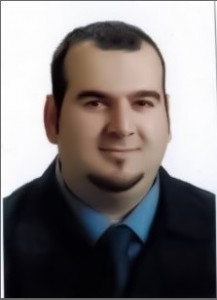
Ammar Almaani
Research: My study examines the contemporary political Arab theatre that accompanied the social and political movements of 2011, the revolutions of the so-called ‘Arab Spring’ and its aftermath. Since the Arab Spring numerous themes have been emerging in Arab theatre, particularly focusing on long-neglected issues regarding minorities, women, refugees, youth disenfranchisement, terrorism and extremism in Arab region. The aim of the study is to investigate how this contemporary Arab theatrical wave showcases and encapsulates the Arab people’s struggle against colonial and postcolonial practices.
Theatre: I have recently seen the play إكسكلوسيف (Exclusive), written and directed by Heider Mun’athir, that addresses the tragic repercussions of extremism in Arab region. Themes running through Exclusive, staged on Theatre National Mohammed V in the 7th Arab Theatre Festival in Rabat-Morocco, explore Arab people cry against the ideological terrorism of Daesh group, so-called ISIS, the psychological motives that drive a human to extremism and the role of some institutions in the creation of terrorist.
Reading: I have been reading some articles that deal with how creative dissenters, such as the Egyptian playwright Leila Soliman, have used theatre as a revolutionary tool that interrogates, scrutinizes, deconstructs, and reflects.
Publications
Despatch by Angie Farrow published by Steele Roberts
Hannah Danson is a hard-bitten New Zealand war journalist who has already served in Bosnia, Afghanistan and Somalia. Along with her photographer lover, Richie, she finds herself in a dangerous war zone covering the story of a genocide. At the heart of the story is a Catholic Nun called Sister Mala and the Sister’s involvement in the genocide drives Hannah into an obsessive quest to discover her whereabouts. The journey to find the truth takes her from observer/commentator of the war to active participant. Epic, disturbing and unnervingly funny, Despatch examines the relationship between responsibility and matters global importance, forcing us to confront our complicity in events that seem beyond our control. It is one of several of Angie’s plays that deal with contemporary issues which concern us all. It was the winner of The Pen is a Mighty Sword International Playwriting Competition run by Virtual Theatre in the USA.
Rowan Gibb’s Biography of Henry Hoyte – An Update
I am continuing with my biography of Melbourne born actor (and crime novelist) “Henry Hoyte” and his three wives, all of whom were on the stage (in England, Australia, New Zealand and America). His first wife, who made her stage debut in Australia in the 1880s and ended her career in a film with Elizabeth Taylor in 1944, was the daughter of one of the brothers who ran Hamilton’s Dioramas in England through the second half of the 19th century, and my next publication will be what amounts to a 400 page footnote on the family and their dioramas, the details of which have hitherto eluded researchers. Another brother, Harry Hamilton, was associated with one of the many “Christy Minstrel” groups who played in Great Britain from 1857 and I am putting together a complete prosopography and itinerary of all these groups and their tours in Great Britain, Australia, New Zealand, India and the East Indies.
Performances
Waves
Waves was Massey University Wellington Campus’ contribution to Climate Change Theatre Action (#ClimateChangeTheatreAction), a series of worldwide readings and performances staged in 22 participating countries led from New York by Theatre Without Borders, The Arctic Cycle, and No Passport as part of Artcop21 – the global cultural programme of the United Nations Conference on Climate Change. Waves was the only Climate Change Theatre Action event for New Zealand. Students and staff from Massey’s theatre studies and expressive arts programmes entertained, consoled and confronted their audiences with works humorous and intense, problem-illuminating and solution-focussed, powerful, sometimes funny, sometimes catastrophic, often moving and inspirational. The works included exciting new world premiere short plays from David Geary (https://en.wikipedia.org/wiki/David_Geary), Jacqueline Lawton (http://www.jacquelinelawton.com/bio.html) and E.M. Lewis (http://emlewisplaywright.com/). Our own English & Media Studies creative communication tutor and NZ playwriting star Phil Braithwaite (http://www.playmarket.org.nz/playwrights/philip-braithwaite) gave a reading from his new work, The Atom Room, plus we launched some brand new talents. See more at: http://sites.massey.ac.nz/expressivearts/2015/10/13/waves-climate-change-theatre-action/#sthash.l54ZwNlF.dpuf
Two Postgrad Documentary Theatre Projects:
Ending the Silence
Barrier Ninja: A verbatim play about hauora by Fran Kewene
This show was developed as the performative component of Fran Kewene’s Masters of Arts, in Theatre Studies at the University of Otago. The question being asked was; ‘how can verbatim theatre be used to document and then represent people’s experiences of hauora?’ Kaupapa Maori has been foundational to the examination, exploration and has guided the re-presentaion of people’s experiences in this solo performance. Barrier Ninja is a verbatim play about hauora based on the personal and professional testimonies of nine Dunedin people. Hauora can be translated as ‘hau’ breath and ‘ora’ life, the breath of life and health. These nine people’s conversations were recorded and then edited to create an audio score. What is unique about this form of verbatim theatre is the way the audio score is played through headphones on an MP3 player and then spoken word-for-word in the performance. This ‘headphone’ technique ensures the actor, Fran Kewene, stays true to the nine people’s vocal inflections and intonations. In rehearsal, the film of the conversations is then studied to inform the body language and gestures for the performance. This ‘headphone’ technique also makes overt the mediation process between the nine participants, the actor, and the audience. A Kaupapa Māori approach underlines the research, editing and production of this play putting Māori experiences and observations of hauora centre stage.
Teaching Positions
Teaching Fellow in Theatre Studies University of Otago
Applications are invited for a full-time, fixed-term Teaching Fellow position in the Theatre Studies programme within the Music Department. The position will run from the 1st of February to the 30th of June 2016. The main tasks of the position involve contributing to the planning and teaching of assigned papers and assessment of students’ work. As the Teaching Fellow, you should be able to teach aspects of research methodology and critical theory (ideally Marxist, Gender and Postcolonial theory, and Carnivale) for a 300-level course, and to deliver most of the curriculum of a core 200-level survey course that comprises theatre history and theory, dramatic criticism and textual analysis. You will also be expected to contribute to teaching elsewhere in the programme, preferably the 400-level Trauma and Violence in Performance paper, covering subjects such as the Eichmann Trial, Butoh and The Grand Guignol, and/or a 300-level and 400-level course on aspects of modern drama. The successful applicant will have a PhD or close to completing a PhD and will be required to show evidence of their ability to teach effectively. View the job description via the University of Otago website: https://otago.taleo.net/careersection/2/jobdetail.ftl?lang=en&job=1501622
Specific enquiries may be directed to Hilary Halba, Head of Programme, Theatre Studies, on Tel: 03 479 8925 or via email: hilary.halba@otago.ac.nz
Applications quoting reference number 1501622 will close on Friday, 27 November 2015.
